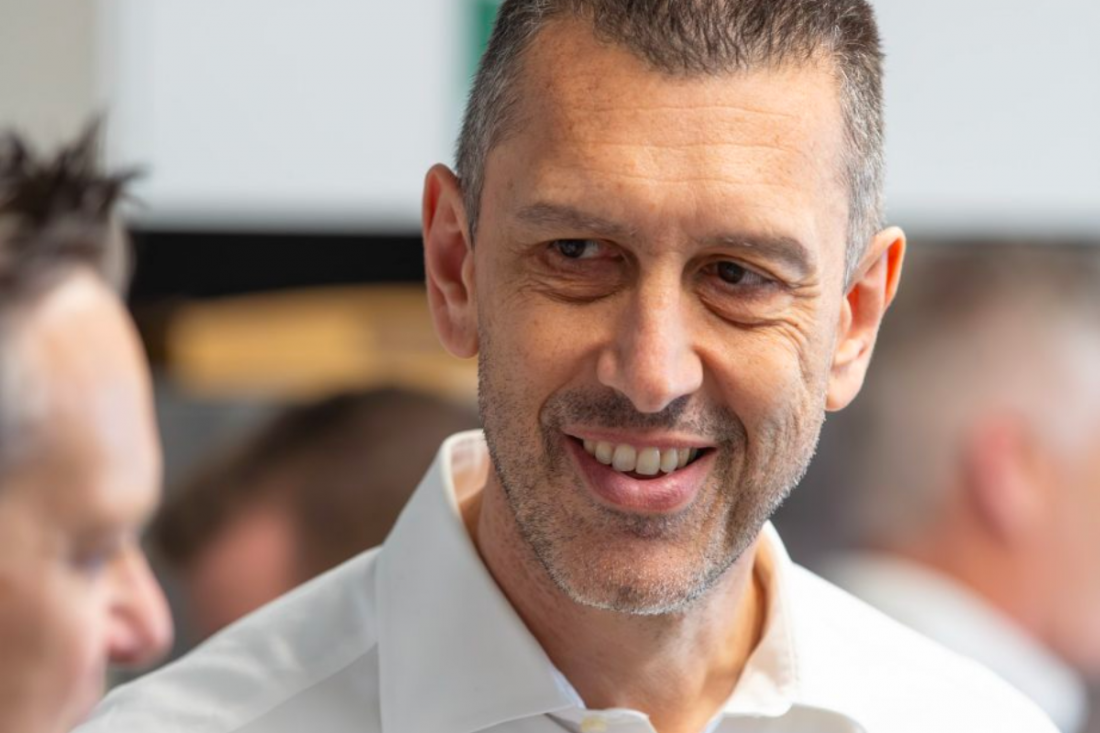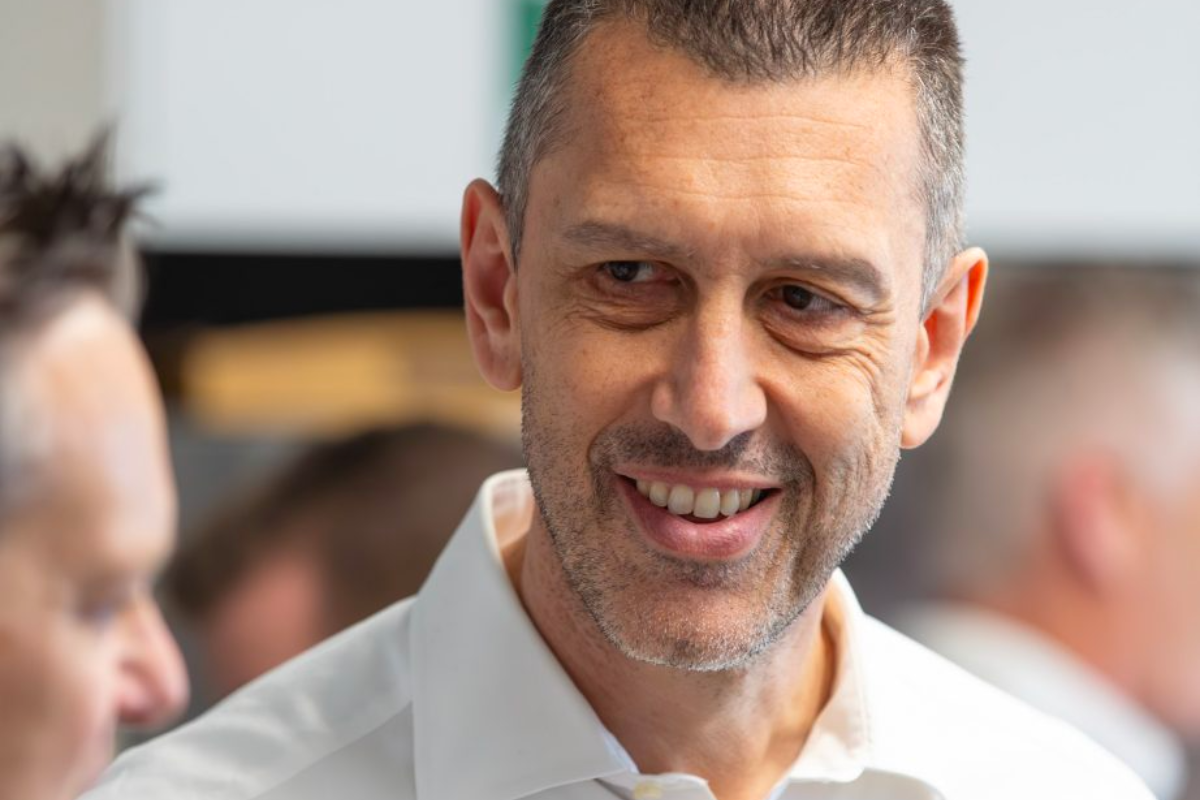Taking the helm of a large company in a new country just as the COVID-19 pandemic lockdowns went into effect would have broken many a leader.
Not so for Schindler Group’s Managing Director of Australia, Paolo Beltrame, who harnessed three decades of industry experience to grow the global elevator and escalator giant in the middle of the pandemic.
After starting his career as an elevator and escalator technician in his native Rome, Beltrame had the ‘crazy idea’ of launching his own elevator company when he was only 25.
He spent the next decade building Elever from the ground up, and his hard work paid off when Schindler Group bought his company and brought him into the fold in 2006.
Over the next two decades, Beltrame relocated to Egypt, Saudi Arabia and the Philippines to take on the role of Schindler Group Managing Director for each of those regions. When the opportunity to become Managing Director of the Australian division came up in 2020, Beltrame seized it.
Facing Roadblocks
“I’ve been in some challenging countries during my international assignments, so I decided to explore a region that was a bit more stable, where I didn’t need to focus on restructuring and turnaround,” Beltrame explains.
“I would be able to focus on growing the business and developing the people and the company. My goal was, and is, to share my experience and knowledge, passing on insight and inspiration to the next leaders. Building my successors in the organization is something I truly value.”
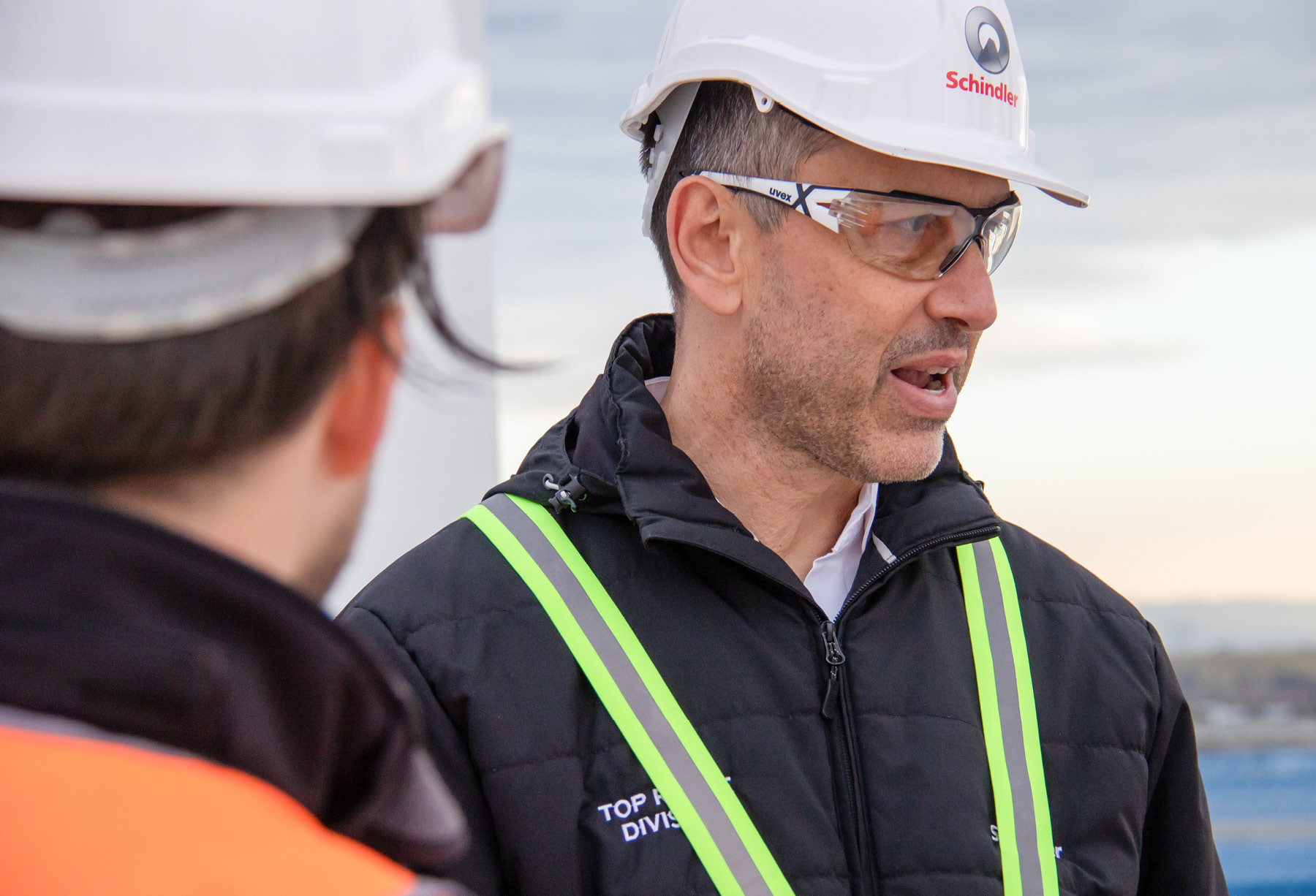
“Building my successors in the organization is something I truly value.”
As his plane landed at Sydney Kingsford Smith Airport in March 2020, Beltrame had no idea Australia would close its international borders the very next day.
But this wasn’t the first time he’d landed in a new country on the cusp of crisis – he’d moved to Egypt just as the Arab Spring protests broke out in 2011 – and he was determined not to let the pandemic thwart Schindler Group’s growth.

Advertisement
“In addition to all the problems caused by lockdowns, we had an electronics shortage crisis around the world, shipping went through the roof, and we had issues with materials in terms of cost and scarcity,” Beltrame says.
“Because a lot of our components come from China, the Shanghai lockdown was a difficult time. Then we faced inflation because of the Russia–Ukraine war, and everyone’s mental health was impacted.”
Coming out Ahead
Despite these challenges, Schindler Group in Australia secured major wins during the pandemic including acquisition of Liftronic in 2022, the largest Australian-owned and managed elevator company.
“We also got approval for the development of our new headquarters in Sydney. They’re currently being built and will consolidate our training center, warehouse and New South Wales office. To get those two investments approved during the pandemic was a big achievement.”
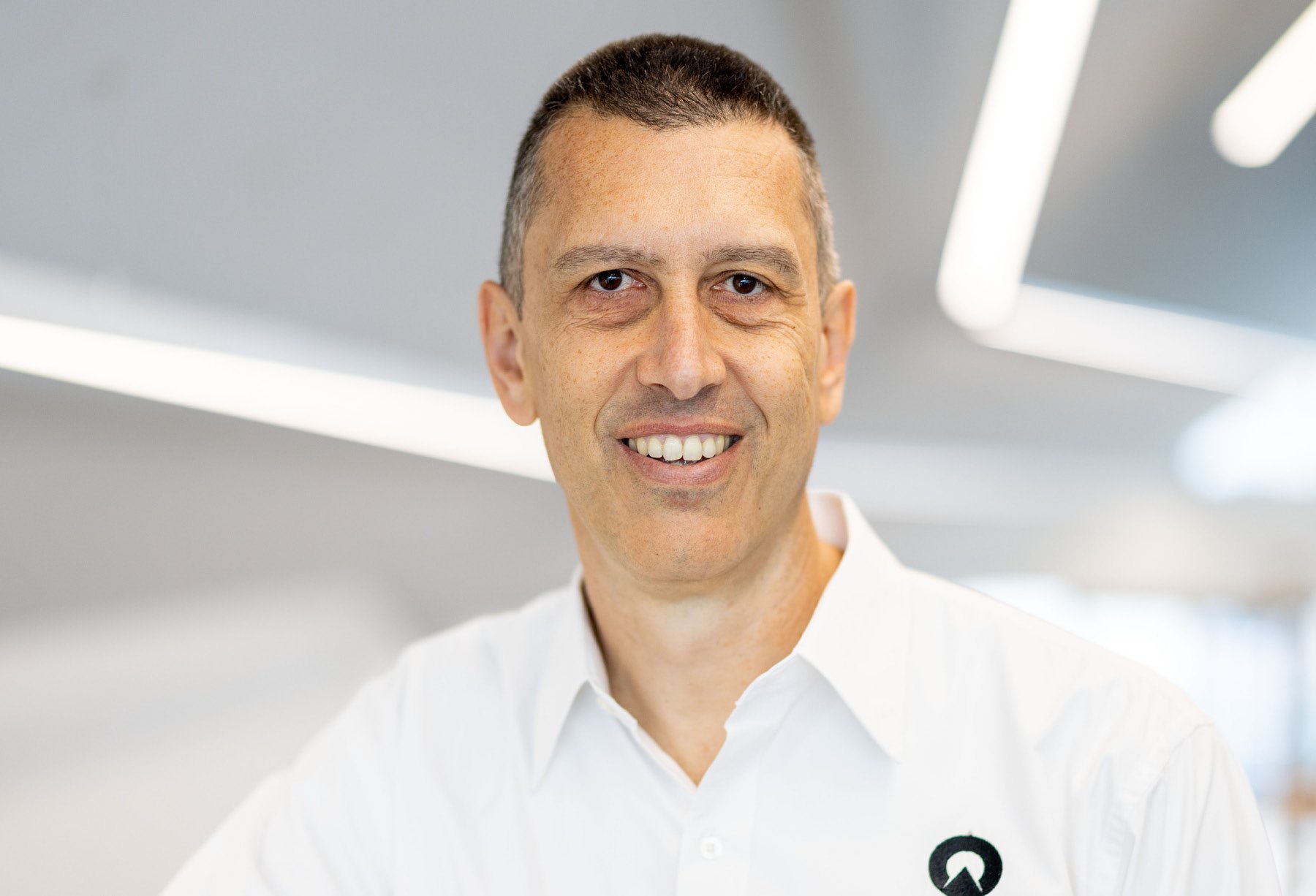
“We simply need to continue doing what we’ve been doing and protect our position in the market.”
The strategic acquisition of Liftronic has allowed Schindler Group to secure an even bigger piece of the market share pie in Australia.
“Liftronic covers a different part of the market that we weren’t already covering, so the company will remain independent with its own strategy and customers despite being 100 percent Schindler-owned,” Beltrame explains.
“We will provide them with the tools and systems they need.”
When it comes to Schindler’s medium-term growth plan, Beltrame says the company’s strategy is to keep doing what it has been doing so well for years.

Advertisement
“In Sydney, the Crown, the Barangaroo convention centers, the new W and the Sofitel are all Schindler buildings,” Beltrame says.
“We’re working on the new airport in Western Sydney, the new Sydney Metro West and the metro in Melbourne. Our fulfillment teams are outstanding and we consistently deliver on our promises, so customers prefer working with us.
“We simply need to continue doing what we’ve been doing and protect our position in the market.”
Values Over Profit
Beltrame puts Schindler Group’s sustained success down to its long history and strong company culture.
“In 2024, Schindler Group will celebrate 150 years, which is a major achievement for any company,” he says.
“The fifth generation of the Schindler family is now in the company and profit has never been the driver for them. Values always come before money.
“Having an environment where everyone can speak up, where diversity and inclusion are highly recognized, where sustainability is always considered – these things are very much in our DNA. Everyone works hard for the common interest.”
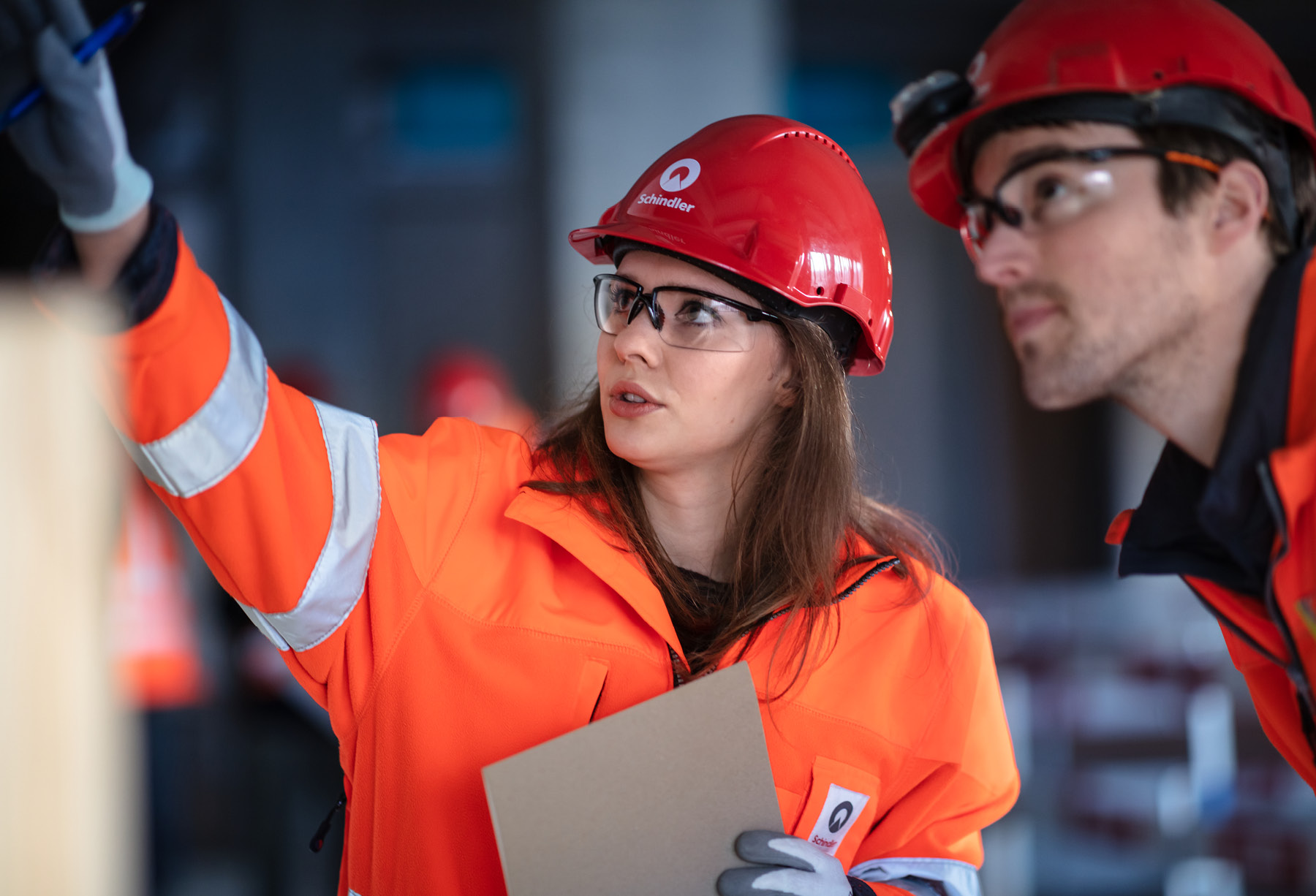
“The fifth generation of the Schindler family is now in the company and profit has never been the driver for them. Values always come before money.”
The company’s long-standing relationships with key suppliers, including Hicksons Lawyers and DHL, are also critical to its ongoing success.
“Schindler has a great partnership with Hicksons, working on projects of varying complexity, size and urgency,” Beltrame says. “We value their measured and commercial approach, as they bring legal expertise focused on Schindler’s specific needs, which instills confidence in our executive team.
“And we also have a wonderful and long-lasting relationship with DHL. They not only supply to us, but are proactive in finding solutions to our ever-changing logistical challenges, which we’re extremely grateful for.
“It’s a testament to our relationship that DHL has such an in-depth understanding of our products and supply chain organization.”
Even though Beltrame may have moved on before the results of many of his efforts and initiatives become apparent, he’s squarely focused on future-proofing Schindler Group.
“I need to think in advance and prepare the company for a time when I’m not going to be here,” he says. “It’s important to do things the right way for the long-term.”
Fast Facts
-
Founded in Switzerland in 1874, Schindler Group now has 69,000 employees in 100 countries.
-
Schindler Group has more than 1,000 branch offices and six R&D facilities worldwide, as well as production sites in eight countries.
-
Every day, the company’s elevators, escalators and moving walks transport 1.5 billion people across the globe.

